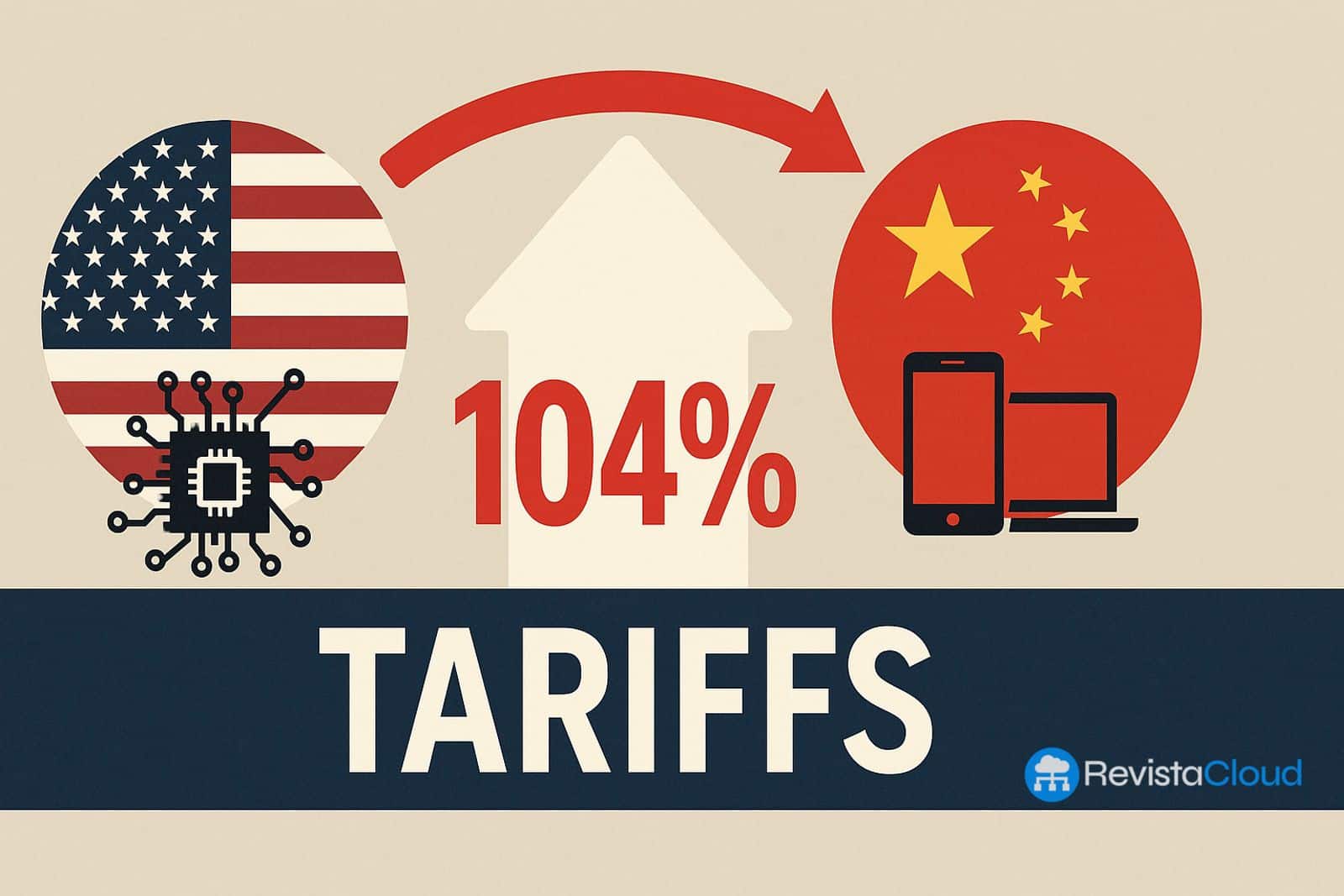Sure, here’s the translation:
Tech Companies Warn That Tariffs Could Raise Costs, Hinder U.S. Competitiveness, and Trigger Retaliation in Foreign Markets
Major semiconductor companies in the United States, including Intel, Qualcomm, and Micron, have joined forces to urge the Trump administration to urgently review its tariff policy on materials and products related to chip manufacturing. In comments submitted to the Department of Commerce, the three companies warn that the current measures could increase their operating costs, weaken their global position, and provoke hostile responses from foreign countries.
A Unified Front in Defense of the U.S. Industry
Intel, one of the most iconic manufacturers in the sector, has requested tariff exemptions for wafers produced in the United States or with U.S. technology. The company also advocates for exempting imported materials used in chip production from tariffs, arguing that increased costs would directly affect the final price of semiconductors.
Micron, a specialist in memory and storage, shares Intel’s concerns. The company emphasizes that a significant portion of its revenue comes from products like SSDs and DRAM or NAND chips, and warns that a global application of tariffs could harm it against foreign manufacturers, even though its research and development is entirely conducted on U.S. soil.
Qualcomm Warns About Geopolitical Consequences
Qualcomm has taken a more geostrategic tone. The company, a leader in 5G technology with aspirations for prominence in the future 6G network, fears that an aggressive tariff policy could trigger retaliation. According to the firm, a large part of the chips made with legacy technologies comes from China, and any disruption in the highly interdependent global supply chain could advantage foreign competitors.
Qualcomm warns that if other countries respond by removing U.S.-made components from their products, it could jeopardize U.S. technological leadership. The company stated, "Even minor disruptions can provide our rivals with an immeasurable technological advantage."
TSMC Also Raises Concerns
The debate is not limited to U.S. companies. TSMC, the Taiwanese chip manufacturing giant, has also voiced similar concerns. In a statement to the U.S. administration, the Asian firm emphasized that tariffs should be introduced with realistic adjustment timelines, especially for those—like TSMC—who have already invested in expanding their production capacity in the United States, particularly in their Arizona plant.
TSMC added that next-generation chips often work in conjunction with older technology chips, so any tariffs on the latter could negatively affect their U.S. customers, limit sourcing options, increase production costs, and ultimately reduce demand.
Strategic Exemptions and Warnings Against Protectionism
Intel has asked the Department of Commerce to focus on where the most valuable parts of the process occur when determining the country of origin for tariffed products, particularly the manufacture of wafers. Additionally, it proposes that exemptions be applied to manufacturing equipment, raw materials, products with insufficient domestic production, and those essential for national security.
The companies have also expressed opposition to "tariff stacking," meaning imposing new tariffs on already existing ones, and suggest that any new measures should replace previous ones.
A Delicate Balance Between Security and Competitiveness
Overall, the proposals from Intel, Micron, and Qualcomm reflect growing concern at the heart of the U.S. tech industry. While they understand the need to protect national security and ensure technological sovereignty, they fear that overly rigid trade policies could have the opposite effect: eroding the global competitiveness of American companies and accelerating the deglobalization of supply chains.
Upcoming decisions by the Trump administration will set the course for a strategic sector crucial to the future economic and technological well-being of the United States. The alarm bells sounded by its key players should not be ignored.
Source: wccftech and latestly
If you need any more help or specific sections translated, just let me know!

